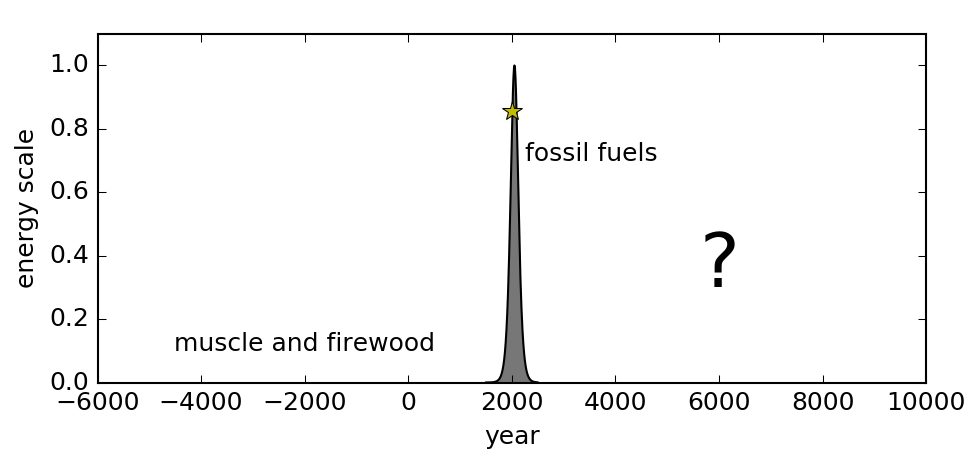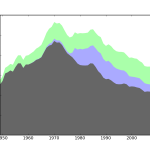Fossil fuels have leveraged human power and ingenuity to a remarkable degree. Their discovery and accelerating utilization utterly transformed lifestyles, achievements, and even how we perceive ourselves as a species.
Yet, one thing we know for certain about fossil fuels is that they are a finite resource on this planet—slowly developed in select locations over hundreds of millions of years and being used about a million times faster than the rate of production. We know that we have already consumed a sizable fraction of the initial inheritance: perhaps now halfway through the irreplaceable allotment of oil. So we know that this phase of the human adventure is a temporary one.
The quintessential graphic for conveying this idea is one I have used many times, because I believe it is the most important plot modern humans could possibly absorb. Human energy use has shot up in the last 150 years, and in the context of fossil fuels will plummet on a similar timescale, leaving—what, exactly?

The fossil fuel energy explosion that powers our current fireworks show is a momentary phenomenon that will be over in a historically short time.
Over timescales relevant to civilization (which began 10,000 years ago with agriculture and cities), plots of almost anything relating to human activity look like hockey sticks: population, agricultural output, industrial output, mined materials, deforestation, species extinctions, and so on [see this later post]. Many of these certainly correlate to population growth, but the per capita impacts also have shot up, compounding the human footprint to a frightening degree. At this point, humans and their livestock account for 96% of mammal mass on the planet, leaving a mere 4% for all wild animals (half of this from massive whales and other marine mammals). It’s not just a footprint any more: it’s a boot on the throat of the planet, leaving non-human life gasping and silently begging for even a little mercy. Is anybody getting video of this?
Almost all of this explosive impact can be traced to fossil fuels, which I have started visualizing as a suit donned by humans that has given us literal superpowers. What would we be without our fancy suit?
Views: 11232


